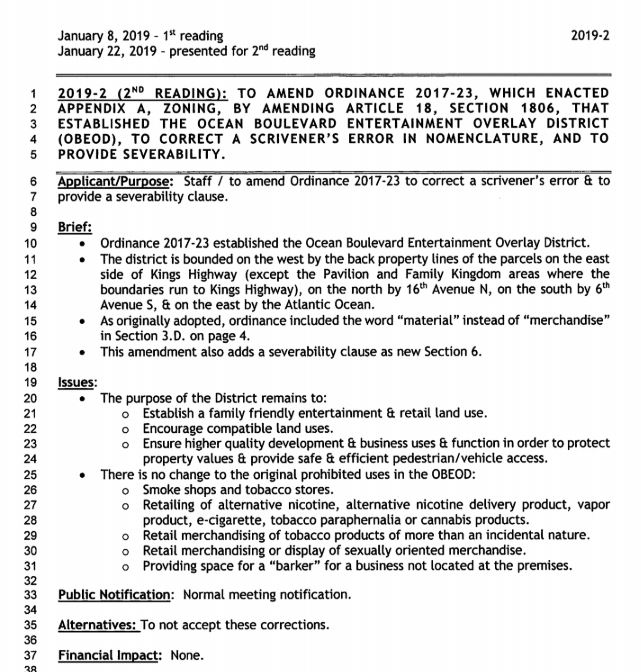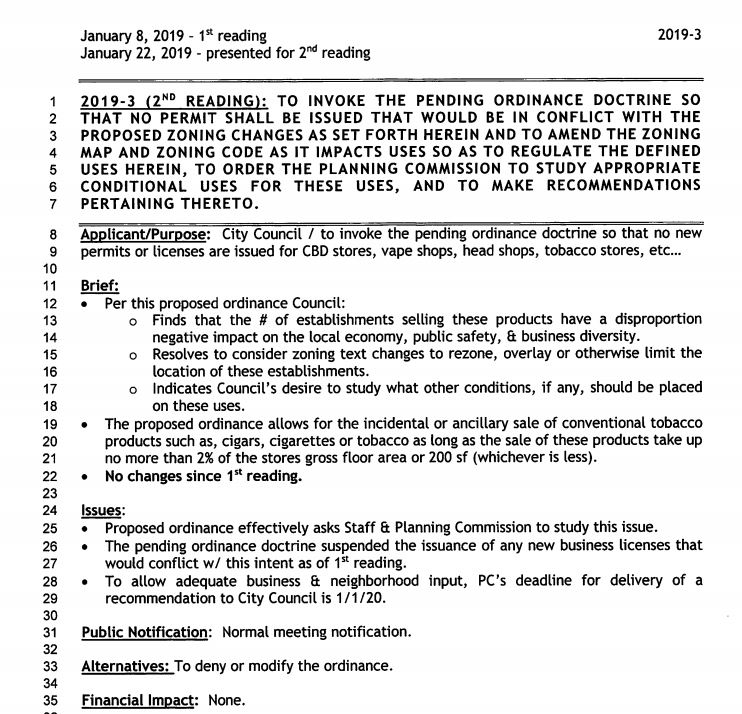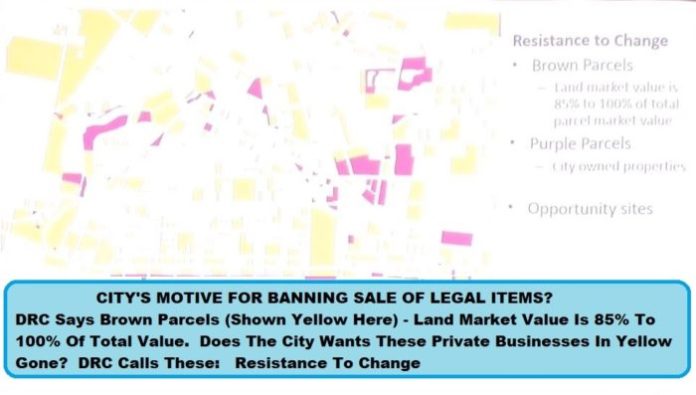The Eighteenth Amendment (Amendment XVIII) of the United States Constitution established the prohibition of “intoxicating liquors” in the United States. The amendment was proposed by Congress on December 18, 1917, and was ratified by the requisite number of states on January 16, 1919. Historians claim the ban of these items lead to the rise of organized crime in America.
Myrtle Beach Prohibition Era Begins
The City of Myrtle Beach voted yesterday to put a moratorium on certain new businesses and increased its ban on products that businesses can sell inside the city limits.
With this vote, Myrtle Beach has now officially banned the sale of more items than were banned during the prohibition era. The City of Myrtle Beach was incorporated in 1938 and did not exist as a city in 1919. However, Horry County did.
The motives and reasoning behind the city’s new ban are supposedly the same as with the lawmakers during prohibition. The claim in 1919 was “the items were not family friendly.“
Will the outcomes also be the same?
Mark Kruea, City Of Myrtle Beach Spokesperson wrote, “Two items were on the City Council agenda today. The addition of the term “dispensaries” occurred in the second ordinance. That’s the ordinance which essentially puts a moratorium city-wide on new smoke shops, vape shops and the like while the Planning Commission studies zoning regulations for that type of retail activity and then makes recommendations for changes, if any, to the current zoning. The second ordinance (the moratorium) doesn’t “ban” anything; it does freeze the issuance of new business licenses and permits for smoke shops, vape shops, dispensaries and the like city-wide while the zoning review is underway. I’m attaching the two ordinances for your convenience. The consent order relates to the first ordinance. It, too, is a zoning ordinance, and it specifies which merchandise items cannot be sold in the overlay district, per the zoning overlay.”


Merchants, however, believe the city is banning these products because the city wants the businesses to fail. At a Downtown Redevelopment Corporation [DRC] meeting, city consultants identified those same properties as “The land the businesses are located on is more valuable than the businesses themselves.”


